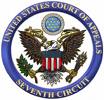Seventh Circuit Week in Review, Part I: Sentencing Issues
 The Seventh Circuit had a busy week, with seven new opinions in criminal cases. In this post, I will discuss just the three cases that focused on sentencing issues; a later post will cover the other cases.
The Seventh Circuit had a busy week, with seven new opinions in criminal cases. In this post, I will discuss just the three cases that focused on sentencing issues; a later post will cover the other cases.
In United States v. Alldredge (No. 08-2076), the court considered the reach of §2B5.1(b)(5) of the United States Sentencing Guidelines, which increases sentence length in counterfeiting cases if “any part of the offense was committed outside the United States.” In return for forging forty checks for a Nigerian, Alldredge received $3,000 in fake currency from Canada. She had not expected to receive fake currency, but decided to spend it anyway, resulting in her conviction for distributing counterfeit currency. The district court increased her sentence based on the international dimension of the case. However, as the Seventh Circuit (per Chief Judge Easterbrook) pointed out, none of Alldredge’s conduct occurred outside the United States, and the Guidelines generally make a defendant responsible only for the foreseeable conduct of others. She did not anticipate that her international connections would provide her with counterfeit currency; indeed, she was in a sense a victim of their crime. Bearing in mind that Alldredge was only convicted of distributing counterfeit currency (and not check forgery), no part of her offense was committed outside the United States, entitling her to a remand and resentencing.


